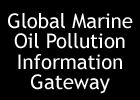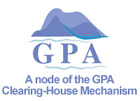|
|
|
Kuwait
Convention +ROPME + MEMAC
The
Kuwait
Regional Convention for Co-operation on the Protection
of the Marine Environment from Pollution was adopted
in 1978 and came into force in 1979. An Action Plan
was adopted in 1978. The objective of the Convention
is to prevent, abate, and combat pollution of the marine
environment in the region. It has four protocols:
-
Protocol
Concerning Regional Co-operation in Combating Pollution
by Oil and Other Harmful Substances in Cases of Emergency;
adopted 1978, in force 1979.
-
Protocol
Protocol for the Protection of the Marine Environment
against Pollution from Land-Based Sources; adopted 1990,
in force 1993.
-
Protocol
on the Control of Marine Transboundary Movements and Disposal
of Hazardous Wastes; adopted 1998
-
 In 1982, in connection with the adoption of the Protocol oncerning
co-operation in combating pollution by oil and other harmful
substances in cases of emergency, the Marine
Emergency Mutual Aid Centre (MEMAC) was established within
the framework of the Convention. UNEP is also cooperating
with ROPME/MEMAC on the development of guidelines for environmental
damage assessment and preparation of compensation claims in
cases of oil spills.
In 1982, in connection with the adoption of the Protocol oncerning
co-operation in combating pollution by oil and other harmful
substances in cases of emergency, the Marine
Emergency Mutual Aid Centre (MEMAC) was established within
the framework of the Convention. UNEP is also cooperating
with ROPME/MEMAC on the development of guidelines for environmental
damage assessment and preparation of compensation claims in
cases of oil spills.
 The high priority put on combatting oil and hydrocarbon pollution
is reflected also in the protocol on land-based sources. According
to its Annex I, regional regulations along with programmes,
measures and timetables required for the implementation, should
be developed on a priority basis, inter alia, for the
following types of wastes:
The high priority put on combatting oil and hydrocarbon pollution
is reflected also in the protocol on land-based sources. According
to its Annex I, regional regulations along with programmes,
measures and timetables required for the implementation, should
be developed on a priority basis, inter alia, for the
following types of wastes:
- Ballast
water, slops, bilges and other oily water discharges generated
by land-based reception facilities and ports through loading
and repair operations.
- Brine
water and mud discharges from oil and gas drilling and extraction
activities from land-based sources.
- Oily
and toxic sludges from crude oil and refined products storage
facilities.
- Effluents
and emissions from petroleum refineries.
- Effluents
and emissions from petrochemical and fertilizer plants.
- Emissions
from natural gas flaring and desulfurization plants.
 In order to implement the Kuwait Convention, its Protocols,
and the Action Plan, the Regional
Organisation for the Protection of Marine Environment
(ROPME) was established in 1979.
In order to implement the Kuwait Convention, its Protocols,
and the Action Plan, the Regional
Organisation for the Protection of Marine Environment
(ROPME) was established in 1979.
|
Jedda
MoU
The
Jeddah
Memorandum of Understanding aims at "strengthening
cooperation and coordination in the planning and implementation
of global and regional environmental programmes in West Asia".
It was signed in 1998, between UNEP and the Council of Arab
Ministers Responsible for the Environment (CAMRE), PERSGA, and
ROPME. |
Jeddah
Declaration
The
Jeddah
Declaration, signed in 2000, "considers urgent environmental
issues from an Islamic perspective on the basis of the universality
of Islam, in the sense that it is a religion that addresses
all man kind. It aims to integrate ethical and moral component
into environmental policies. --- Within the framework of its
global environment programme, UNEP would provide technical support
and facilitate the linkage between its various global and regional
programmes, with those developed by the Organization of the
Islamic Conference (OIC), regarding the integration of ethical
and moral components into their programmes". |
Council
of Arab Ministers Responsible for the Environment + Abu Dhabi
Declaration
"Recognizing
the urgent need to develop a clear vision and strategy for the
future of a well-identified Arab environmental action, the Council
of Arab Ministers Responsible for the Environment (CAMRE) issued
the Abu
Dhabi Declaration in 2001. The Declaration stresses
the urgent need to alleviate poverty and improve the living
standards and economic conditions of the average Arab citizen
through programmes of sustainable development and environmental
protection, based on the rational use of natural resources".
It "calls
for a new strategy based on a deeper understanding of the global
developments in the various fields of environmental action:
- the
application of modern environmental information and
accounting systems to help decision makers realize the feasibility
of investing in environment-friendly practices;
- the
adoption of Cleaner Production strategies;
- capacity
building and institutional development through the development
of human resources, the improvement of educational
systems, and encouraging Arab media to project a better
understanding and in-depth analysis of regional and
international environmental issues, and realizing that civil
society must be empowered to play a more effective role
in environmental decision-making".
|
Gulf
Cooperation Council
The
objectives of the Cooperation
Council for the Arab States of the Gulf Secretariat General
(Gulf Cooperation Council, GCC) is "to effect coordination,
integration and inter-connection between Member States in all
fields, strengthening ties between their peoples, formulating
similar regulations in various fields such as economy, finance,
trade, customs, tourism, legislation, administration, as well
as fostering scientific and technical progress in industry,
mining, agriculture, water and animal resources, establishing
scientific research centres, setting up joint ventures, and
encouraging cooperation of the private sector".
 In the field of environmental cooperation, the GCC states
the following: "In view of the common developmental and
environmental problems and conditions in GCC States, as a
result of geographic proximity and similar level of development,
the GCC adopted, in 1985, a strategic framework for environmental
work at local and regional levels under the title of "General
Policies and Principles for Environment Protection".
It aims at formulating proper scientific formula to protect
the environment and maintain the natural resources in a way
that complies with the goals of comprehensive development
and realizes the optimum benefit of available human and natural
potentials of the Member States.
In the field of environmental cooperation, the GCC states
the following: "In view of the common developmental and
environmental problems and conditions in GCC States, as a
result of geographic proximity and similar level of development,
the GCC adopted, in 1985, a strategic framework for environmental
work at local and regional levels under the title of "General
Policies and Principles for Environment Protection".
It aims at formulating proper scientific formula to protect
the environment and maintain the natural resources in a way
that complies with the goals of comprehensive development
and realizes the optimum benefit of available human and natural
potentials of the Member States.
Moreover, GCC States act to unify all regulations, laws, and
legislations that deal with the various aspects of the environment.
These regulations, laws, and legislations represent the minimum
requirements to enact national legislations."
|
UNEP
ROWA
The
mission of UNEP
Regional Office for West Asia (ROWA) is to link and integrate
the environmental priorities and programmes of West Asia with
the global environmental programmes of UNEP. "The
coordination established with CAMRE, PERSGA, and ROPME is a
major step towards enhancing cooperation in the region.
The support provided by the Bahrain, the host country, and the
GCC contributes significantly to the sustainability of UNEP’s
efforts in the region". |
PERSGA
Regional
Organization for the Conservation of the Environment of the
Red Sea and Gulf of Aden (PERSGA), is an official regional
organization based in Jeddah, Saudi Arabia, responsible for
the developmentand implementation of regional programmes for
the protection and conservation of the marine environment of
the Red Sea and Gulf of Aden, and was formally established in
1996, with the signing of the Cairo Declaration by all cooperating
parties to the Jeddah Convention. Major functions of PERSGA
include the implementation of the Jeddah Convention, the Action
Plan, and the Protocol. The organization has also been given
responsibility for the preparation and implementation of the
Strategic Action Programme (SAP) and related activities. PERSGA
has played an active role in promoting regional cooperation
and has recently supported regional workshops concerning environmental
assessment (EA), Marine Protected Areas, navigation risks and
living marine resources. |
UN
ESCWA
The
UN Economic and Social Commission
for Western Asia (ESCWA) has a mandate for raising the level
of economic development and cooperation among the countries
of its region and between them and other parts of the world.
The Natural Resources and Environment Management Programme under
its Energy, Natural Resources and Environment Division includes
a water resources component covering issues like assessment
of water resources in ESCWA member states; harmonisation of
environmental standards in the water sector of ESCWA member
states; and Progress achieved in the implementation of chapter
18 of Agenda 21. |
RESCO
Regional
Clean Sea Organisation (RECSO) is an oil industry co-operative
organisation functioning on the concept of "mutual aid".
RECSO was officially set up in 1972 by 13 founder members. The
oil companies in the region at that time recognised a need for
collective response to major oil pollution incidents and thus
came together to achieve a common objective - protecting the
Gulf's resources from oil pollution. The prime responsibility
of RECSO today is to protect the marine environment in the Gulf
from oil pollution emanating from operations of RECSO member
oil companies in the region. Each member oil company shares
the responsibility of ensuring a long-term commitment to the
"Clean Gulf" concept. RECSO recognises this pledge
and co-ordinates efforts towards meeting this challenge. |

|
|


